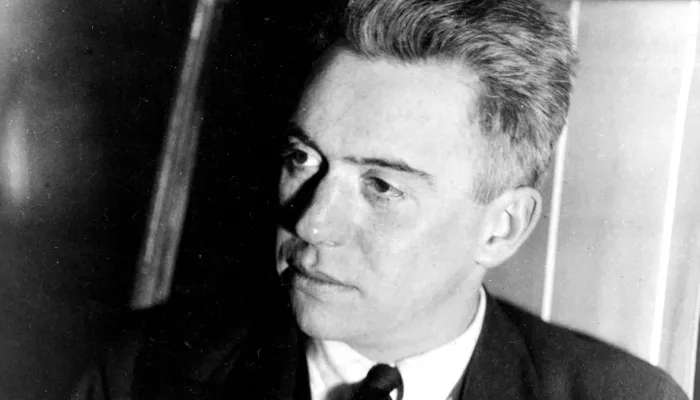Conyer Clayton
Biography
Conyer Clayton is a writer and editor from Louisville, Kentucky currently living in Ottawa, whose award-winning, multi-genre work often explores grief, disability, and gender-based violence through a surrealist lens. They are the author two full-length poetry collections: But the sun, and the ships, and the fish, and the waves. (Winner of The Archibald Lampman Award, and Finalist for the Pat Lowther, Raymond Souster, and ReLit Awards, A Feed Dog Book, Anvil Press) and We Shed Our Skin Like Dynamite (Winner of the 2021 Ottawa Book Award, Guernica Editions). They are a Senior Editor at Augur Society and a member of VII (an Ottawa-based poetry collective).
Conyer's latest chapbook, Kneeling in Our Name, is out with Gap Riot Press, and will be a part of their forthcoming 2026 full-length collection of poetry with Buckrider Books (Wolsak and Wynn).
Their fiction, poetry, and nonfiction has appeared in Best Canadian Poetry 2023, The Ex-Puritan, This Magazine, Room Magazine, filling station, Canthius, Arc Poetry Magazine, Plenitude, CV2, The Capilano Review, and others. They are currently working on a novel with the support of the Canada Council for the Arts and the Ontario Arts Council.
Their work on abortion was read at city council by then-poet-laureate of Fredericton, Jenna Lyn Albert, and garnered national attention to the role of the poet laureate when some council members claimed the poem was "too political." Our identities and experiences are always worthy of being written about and shared, and doing so is a form of activism that can help create meaningful change.
Conyer's favourite writers include Mary Ruefle, Italo Calvino, Samanta Schweblin, Maria Reva, Leonora Carrington, Carmen Maria Machado, Mikko Harvey, Kaveh Akbar, and Stuart Ross. But beyond words—lifting weights, bugs, toads, dancing, music, cows, squirrels, garlic, gardening, their family—all these things inspire them.
Micro-interview
I mostly read prose in high school, but I find the line between prose and poetry is a thin (and maybe non-existent) one, hence my love for the prose poem, and many of my favorite poets were in fact prose writers: Italo Calvino, Virginia Woolf, Jorge Luis Borges. However, I did read H.D. and John Berryman's The Dream Songs extensively. My favorite was Dream Song 14, which begins, "Life, friends, is boring. We must not say so," and ends with "somehow a dog / has taken itself & its tail considerably away / into mountains or sea or sky, leaving / behind: me, wag." This poem, along with all the magical realism I was reading, helped me feel I could be honest in my writing without worrying about literal truth and logical meaning. This is a lesson I still work from today.
My first published poem was in 1st grade in my school's literary magazine. It was a minimalist poem about my mittens that I am rather sure I plagiarized. From there though, I must have caught the poetry bug, and began writing my own (not plagiarized) work through middle school, which I mostly kept private. I began thinking of myself as a poet in high school when I took my first creative writing course in 12th grade, and was appointed the editor of my high school's literary magazine. My teacher's trust in me in that role gave me a lot of confidence in my creative intuition.
To enjoy writing. Frankly, I feel it is as simple as that. That is not to say it will not sometimes be difficult. Certain subjects can be immensely difficult to spend time with. Editing can be tedious and long and challenging. However, if a writer is not finding joy somewhere within the act of writing, or in the final product, what is the point? What our work does from there goes beyond us. Sometimes poetry can create awareness and conversations that create change within the world. Sometimes a poem can help someone else through their grief, through a traumatic experience. Sometimes a poem simply makes another person smile. All of these are great things. But what our poems do once they leave us is not really up to us, so we must concern ourselves first and foremost with what writing does for us — so if you don't enjoy it, why do it?
I would choose "The ABG (The Able-Bodied Gaze)" by Therese Estacion. Firstly because I am drawn to disability poetics, but also because this poem makes such creative and interesting use of visual space, formatting, and the page, that it would be a fun challenge to see how one could go about doing it justice using only the voice!


